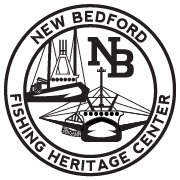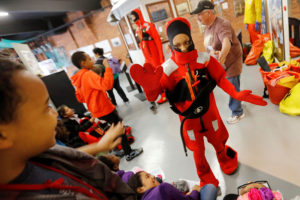
The Center invites the public to bring their fishing industry related photographs, both historic and contemporary, as well as documents such as settlement sheets, union books, or news clippings to be scanned. Staff will scan the materials and record any information the owner shares about each piece. The owner will leave with their originals along with a digital copy of the scans on a flash drive. The Center is working to create a digital archive of these materials which will be made available to researchers and the public. These documents will help us to tell the story of the fishing industry.

The Center invites the public to bring their fishing industry related photographs, both historic and contemporary, as well as documents such as settlement sheets, union books, or news clippings to be scanned. Staff will scan the materials and record any information the owner shares about each piece. The owner will leave with their originals along with a digital copy of the scans on a flash drive. The Center is working to create a digital archive of these materials which will be made available to researchers and the public. These documents will help us to tell the story of the fishing industry.
Tease your brain!
Bring a team or join one here, questions will pertain to the commercial fishing industry but be player friendly. 5 chances to win, $5 beers, $5 admission!
Sponsored by Chris’ Electronics Corp. and Moby Dick Brewing Co.
New England’s fishermen harvest millions of pounds of seafood each year. Anyone who has fished for any length of time has a story about something unexpected that came up in the net. From bottles, pottery, and tools to bones, fossils and even bombs, remarkable objects are continuously pulled up from the deep.
Visit us on Saturday, March 2 from 1:00pm-4:00pm while a team of maritime archeologists are at the Center examining treasures from the deep.
CALLING ALL FISHERMEN!
Have you found unexpected items in your nets or dredges and don’t know what they are? If so, bring them in and a team of maritime archeologists will be at the Center to examine your artifacts and possibly solve the mystery!
For more information please contact the Center at 508-993-8894 or email programs@fishingheritagecenter.org.
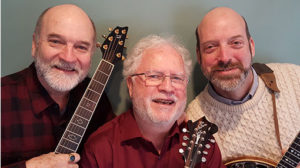
“Irish Songs of the Sea” features Eddie Dillon, Tom Kennedy and Joe Zajac, known for their many years of concerts, festivals and performances at many, many Irish bars. This performance will highlight Irish maritime music. From whalers’ chanteys to contemporary ballads, they are borrowing from their Irish roots to present an exciting evening of song, wit and story.
Eddie Dillon is a singer songwriter, raconteur and guitarist known for his wit and compositions that embrace the acutely sensitive while paying homage to the American catalog of musical comedy.
Tom Kennedy and Joe Zajac have been performing around the Northeast for more than thirty years. Their music encompasses a number of different musical styles including Irish and American folk, bluegrass, country, and old-time rock and roll. Those various musical influences are reflected in the instruments they play: guitar, banjo, mandolin, pennywhistle, and harmonica.
Tickets: $15/Member price: $12, purchase tickets at www.brownpapertickets.com
The Center invites the public to bring their fishing industry related photographs, both historic and contemporary, as well as documents such as settlement sheets, union books, or news clippings to be scanned. Staff will scan the materials and record any information the owner shares about each piece. The owner will leave with their originals along with a digital copy of the scans on a flash drive. The Center is working to create a digital archive of these materials which will be made available to researchers and the public. These documents will help us to tell the story of the fishing industry.
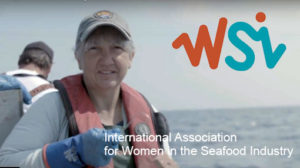
The New Bedford Fishing Heritage Center will screen the winning films of the International Association for Women in the Seafood Industry’s 2018 Video competition. These short films document lives of women in several segments of the seafood industry (fishing, fishfarming, processing, retailing, marketing).
Puntada Invisible produced by FUNDAMAR and directed by Henry Robusto
This video brought out the most clearly how women play important but undervalued roles in the fishing industry, and are affected by health hazards in these roles – as well as being affected by the decline in the industry. This was a very clear message delivered by an authentic voice of a woman doing her work. She was able to make really complex and important points very effectively by just talking about her life, her work and her understanding of the situation.
Mujeres del Mar del Cortés
This video, narrated by a selection of women’s voices, brings to life the underlying values and motivating principles behind a women’s co-operative. Women’s coops are covered by a few other films, but this one stood out as it clearly expressed the need for a better understanding of the environment and ecological sustainability, based on a commitment to the future of both their community and the local environment.
Girls who Fish in Petty Harbour
This video addresses the question of challenging male-dominated stereotypes and the need to encourage women to participate in fishing. Challenging male stereotypes is covered by several of the films, but what made this one stand out was how it was able to also link to the importance of proactively encouraging women to take on fishing roles, so it is not just a few individual women, but becomes seen as normal for women to share in these roles. A great exampleof empowering young women to get on the water and to join commercial fisheries.
The Invisible Hands Produced and directed by Shrayansh Pandey and Shrinkhla Pandey
See how Ratna and other fishing families are so proactive in expanding their business via grants and setting up the Fish Nutri Carts! Very inspiring where women with imagination, and courage are paving new ways to mitigate their financial troubles.
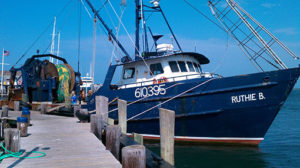
The story of Bill and Ruth Blount, the last fishing family on Nantucket: their struggles to stay afloat financially. The film provides an intimate portrait of a fishing family. Recently Bill and Ruth have relocated to New Bedford, and both will be attending the screening to answer questions following the film.
Dock-U-Mentaries is a co-production of New Bedford Whaling National Historical Park and the New Bedford Fishing Heritage Center. Films about the working waterfront are screened on the third Friday of each month beginning at 7:00 p.m. in the theater of the Corson Maritime Learning Center, located at New Bedford Whaling National Historical Park, 33 William Street in downtown New Bedford. All programs are open to the public and presented free of charge.
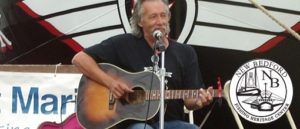
Due to circumstances beyond our control this concert has been cancelled.
Jon Campbell owned a workboat before he owned a car. In those days bay scallops, clams, and quahogs, flounder and lobsters were abundant in the coastal ponds and Narragansett Bay. Regulations were few and the commercial fisheries were still represented by independent men in wooden Eastern Rigs.
For the past 25 years Jon has been writing and performing music based on the wide range of experience available to those people living in coastal regions, the tourists, the cuisine, the fisheries, cranky Yankees and an assortment of humorous and poignant characters.
Jon was recently inducted into the Rhode Island Music Hall of Fame.
Tickets are $12/member, $15/non-member and can be purchased at www.brownpapertickets.com
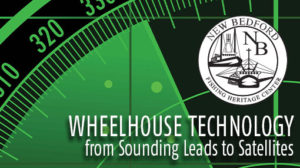
New Bedford Fishing Heritage Center is pleased to announce the launch of Wheelhouse Technology from Sounding Leads to Satellites, a major new exhibit and program series exploring the evolution of communication, navigation and fish finding and the impact of those changes on the fishing community. The exhibit opens on the April 11th AHA night when marine electronics technicians from Chris Electronics will be on hand to answer questions. The exhibit will remain on display through July 7th.
Over the past century, new technologies have allowed New Bedford’s fleet to arrive on the grounds faster, fish safer, and communicate more easily. But at what cost? This exhibit considers the evolution and impact of technological change on the industry, the community, and the fish. In addition to considering the science behind devices such as EPIRB, SONAR, and LORAN, the exhibit and programs will consider topics such as Technology & Privacy, Dependence on Technology, and Technology & Sustainability.
Funding for the exhibit and program series was provided by a National Maritime Heritage Grant administered by the National Park Service, Department of the Interior, a project grant from Mass Humanities, a state agency supported by the National Endowment for the Humanities, and grants from Dartmouth, Fairhaven, and New Bedford Cultural Councils, local agencies supported by the Mass Cultural Council. The Center is grateful to Chris Electronics and the School for Marine Science and Technology for their extraordinary in-kind support, and the members of the fishing community who loaned or donated artifacts and shared their knowledge.
